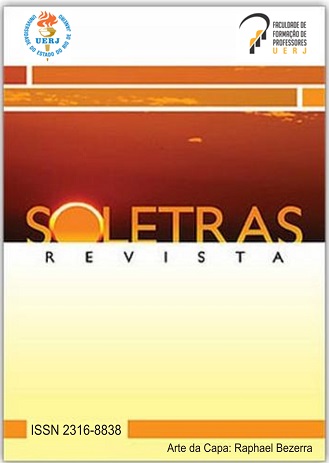A INFLUÊNCIA ESPANHOLA NA EDIÇÃO DE 1584 D’OS LUSÍADAS
Abstract
A epopeia camoniana, obra-prima do Renascimento português,apresenta as proezas do povo lusitano rumo ao Oriente através
de um mar até àquela ocasião inexplorado. O momento mais temível era a passagem do Cabo das Tormentas, que representava a luta hercúlea do homem contra a natureza e cuja difícil transposição vai contribuir para a divinização dos marinheiros. No final do poema os heróis vão ser premiados pelos triunfos alcançados, reencontrando a Idade do Ouro, o Paraíso perdido. A imortalização dos portugueses vai materializar-se na Ilha dos Amores através do seu envolvimento amoroso com as ninfas e da união do capitão Vasco da Gama com Tétis, deusa da água, simbolizando a conquista do mar.
Downloads
Issue
Section
License
The approval of the article implies the immediate and free transfer of the publication rights in this journal. The author (s) authorize the Postgraduate Program in Literature and Linguistics (PPLIN) to reproduce it and publish it in Revista SOLETRAS, understanding the terms "reproduction" and "publication" in accordance with Definition of article 5 of Law 9610/98. The author (s) will continue to own the copyright for subsequent publications. The article can be accessed by the world wide web (http://www.e-publicacoes.uerj.br/index.php/soletras), being allowed, free of charge, the consultation and the reproduction of copy of the article for own use. Cases of plagiarism or any illegalities in the submitted texts are the sole responsibility of their authors.



